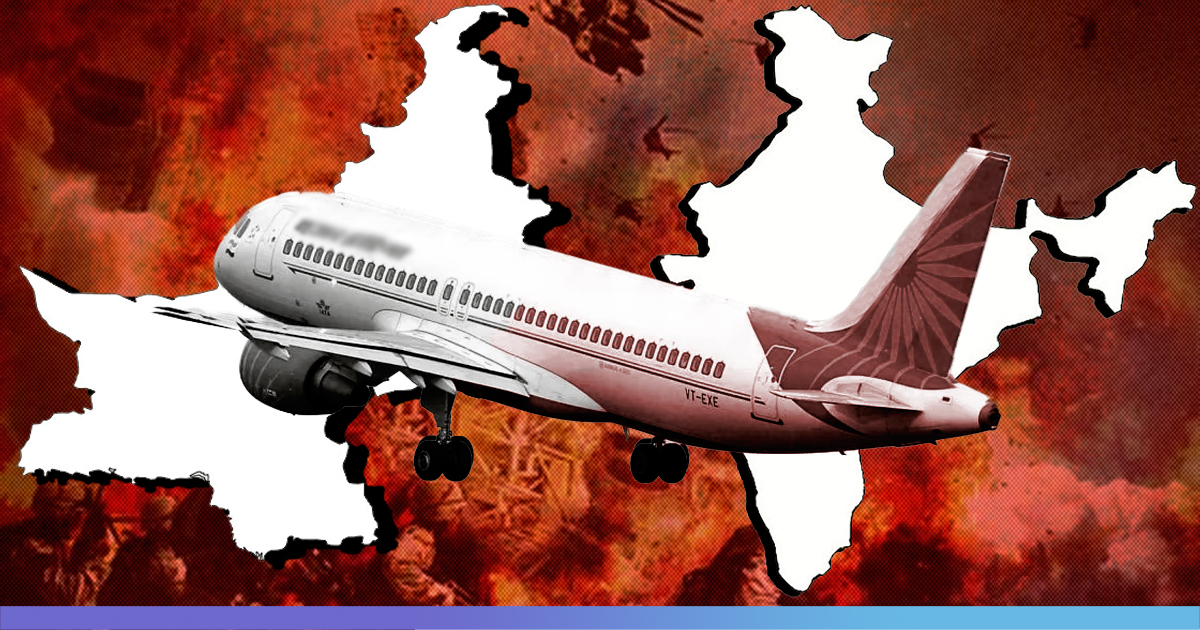
Pakistan Opens Its Airspace After 140 Days Of Balakot Strike; Indian Flights Start Using The Closed Air Routes
16 July 2019 12:41 PM GMT
Pakistan has lifted the ban on Indian flights using its airspace today, 140 days after the Balakot Airstrikes which happened on February 26. Moments later, India has also lifted its ban on Pakistani airlines using the Indian airspace.
After cancellation of NOTAMS by Pakistan and India in the early hours today , there are no restrictions on airspaces of both countries, flights have started using the closed air routes, bringing a significant relief for airlines. @AAI_Official @airindiain @HardeepSPuri
— Ministry of Civil Aviation (@MoCA_GoI) July 16, 2019
The Pakistan airspace was closed on February 26.
A NOTAM, or Notice to Airmen, was issued by the Pakistani Civil Aviation Authority opening the airspace which said, “With immediate effect, Pakistan airspace is open for all type of civil traffic on published ATS (Air Traffic Service) routes”. With the two developments, regular air traffic over South Asia has resumed.
Effects Of The Move
Pakistan is situated in the middle of a vital aviation corridor, and the airspace restrictions affected hundreds of commercial and cargo flights each day.
Initially, Pakistan had completely shut down its airspace. However, it later opened up two of its air routes out of 11 air routes, when tensions eased, but restrictions continued to hamper the air traffic.
This decision to withdraw restrictions is expected to reduce the flight duration by 70-80 minutes for flights that earlier used Pakistan’s airspace to pass through. According to flight tracking portal Flightradar24, many inbound Air India flights from Europe were using the route passing through Pakistan airspace to return to Delhi. Many east-west flights flying over the subcontinent were affected due to the closure. However, the westbound flights from airports in northern parts of India such as Delhi, Lucknow, Amritsar etc. were worst affected.
For the westbound flights from airports in North India to enter Pakistani airspace — instead of taking a detour to Gujarat or Maharashtra and then turning right for Europe, North America or West Asia — most flights witnessed an increase of 70-80 minutes in their durations.
Indian carriers have together incurred a loss of over Rs 550 crores due to the restrictions that led to longer flight durations and higher fuel burns.
Air India alone lost Rs 491 crores till July 2. Air India’s flights from Delhi to Chicago had a stoppage in Europe for refuelling. Further, IndiGo’s flight from Delhi to Istanbul was compelled to make a refuelling stop at Doha. Similarly, SpiceJet, the only Indian airline flying the Delhi-Kabul route, had cancelled the flight, according to data presented by Civil Aviation Minister Hardeep Singh Puri in the Rajya Sabha on July 3.
SpiceJet and GoAir lost Rs 30.73 crores and Rs 2.1 crores respectively till June 20.
The decision to open the airspace has been taken by Pakistan hours after United Airlines Holdings Inc said that it was extending the suspension of its flights from the United States to Delhi and Mumbai in India until October 26 because of restrictions over the Pakistani airspace.
Also, Read Chandrayaan-2: ISRO Calls Off Launch Due To Technical Snag
 All section
All section













